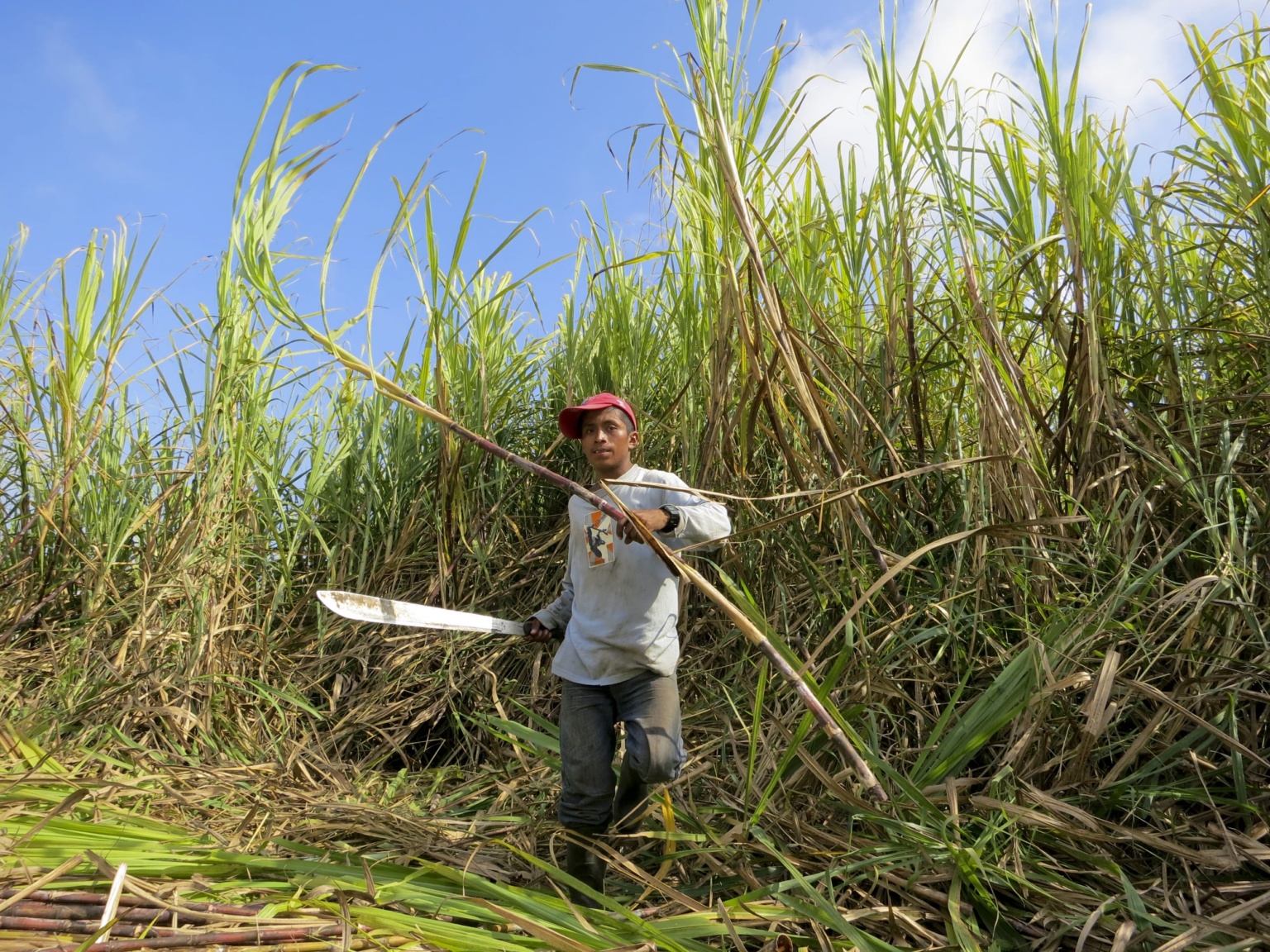
Coopecañera
- cooperative of Costa Rican sugar cane growers formed in 1972 to sell collectively
- invests its fair trade premium mostly in environmental projects
- supplies unrefined, fair-trade-certified cane sugar to Oxfam Fair Trade
Fair-trade sugar supports the environment
Costa Rica is the greenest country in the world with up to 25% of its land accounted for by nature reserves. Yet it is not invulnerable to the whims of Mother Nature. Climate change is causing more and more floods, hurricanes and extended drought periods. Which is no joke for a sugar cane nation.
Unstable weather conditions are absolutely no good for the cane fields. Sugar cane is extremely sensitive to volatile weather conditions and disease. Sugar cane growers in the region of San Ramón in particular are already feeling the impact.
Thankfully, the farmers of the Coopecañera cooperative (short for Cooperativa Cañera de San Ramón R.L.) realise that they can play a role in protecting the majestic nature in their country. In recent years they have initiated various environmental projects using the fair trade premium, such as a water collection system. They also process coffee pulp – most members also produce fair-trade coffee – into a completely organic fertiliser for all their crops.
Cane sugar and more
Because there is such fluctuation between the market prices of many products, I sell both sugar and coffee. It’s reassuring that Coopecañera can guarantee that it will buy a specific amount of sugar.
Lionel, Coopecañera member
A well-regulated sugar cane market
In Costa Rica the sugar cane industry is regulated by the LAICA (Liga Agrícola de la Caña de Azúcar). This umbrella organisation oversees relations between the sugar producers and refineries. It determines how much sugar cane is permitted to be produced and exported each year.
LAICA also sets the prices in the sugar industry, both for the refineries and for the sugar cane growers. 62.5% of the sale price goes to the cane producer and 37.5% to the refinery. For fair-trade sugar, there is also a fair trade premium of 60 dollars per ton that goes to the cooperative.
Coopecañera & Oxfam
- To support the small sugar producers in the San Ramón region, Oxfam purchases directly from Coopecañera via LAICA.
- In 1999 Coopecañera attained fair trade certification and sold its first load of fair-trade sugar to Oxfam one year later.